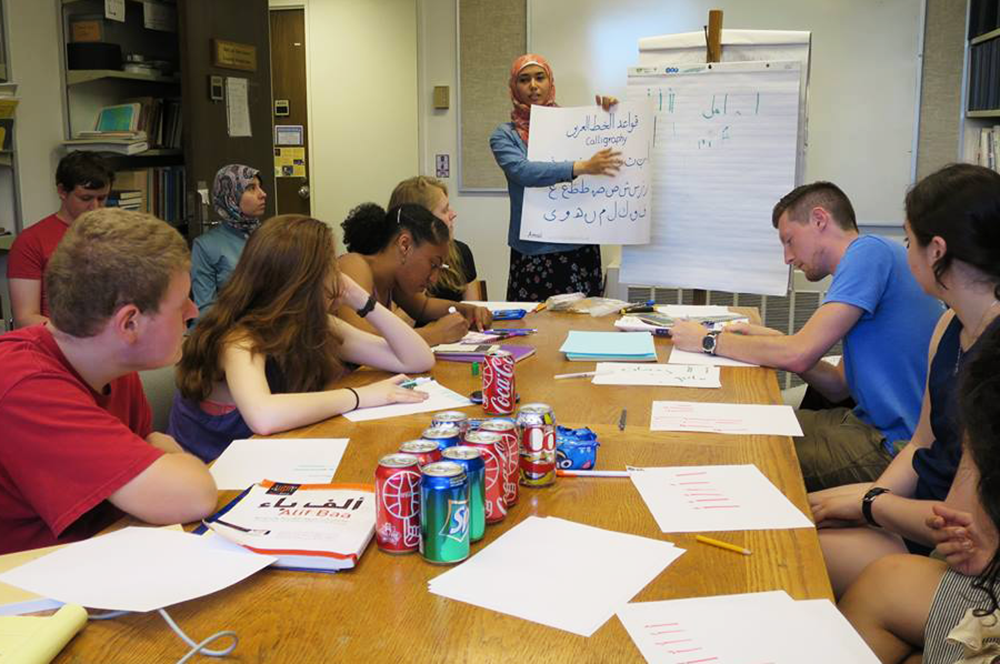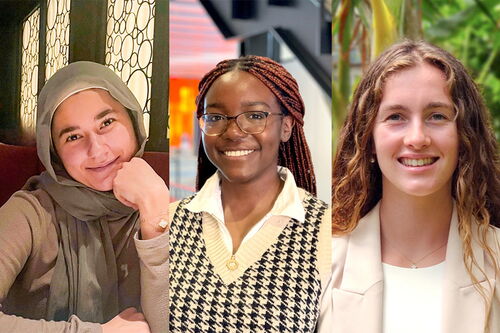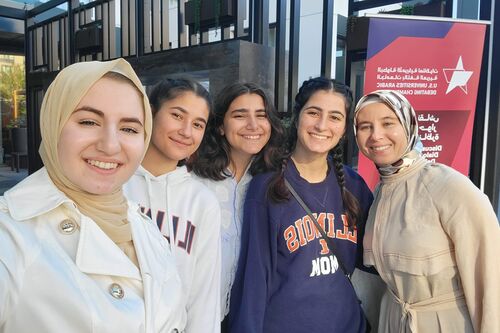Arabic studies grows steadily at Illinois

It’s an intriguing success story at Illinois: At a time when many language programs are struggling to maintain enrollments, the Arabic studies minor at Illinois has been steadily growing since its launch in 2010.
According to the Department of Linguistics, home to the Arabic studies minor, there are 15 students currently pursuing the minor. The number may be relatively small, but the rate of its increase over the past couple of years has drawn attention.
In February, the Senate of the Urbana-Champaign campus, which approves academic offerings, approved adding six courses to the minor, in topics ranging from literature and culture to history, Arabic-English translation, and Business Arabic. Organizers said the revised course offerings will give students a more in-depth and relevant understanding of the region, and they expect the change to lead to higher enrollments.
An article by the Daily Illini, published in February, suggested that the growth in Arabic studies was influenced by conflicts in the Middle East. Eman Saadah, however, director and coordinator of the Arabic Language Program and director of the Less Commonly Taught Languages Program, attributed the increased enrollment to efforts on campus—namely, language activities, cultural events, and more career-related courses.
The program has also enhanced its study abroad opportunities through an agreement with a language institute in Jordan that has made the country an attractive option for students seeking an immersive Arabic experience. There are also excellent study abroad options in other areas of the Arab world, she added.
“Almost all of our students come back from these study abroad trips with better language skills, but above all they are more motivated to learn Arabic further,” Saadah said. “Students who wish to be more competitive in their majors and wish to set themselves apart from their colleagues appreciate the value of learning a less commonly taught language—LCTL—and I would argue that Arabic is considered one of, if not the most important language among the LCTLs.”
William Velez enrolled in an Arabic class during the summer after his sophomore year. He thought it would be his only class in the topic, but he ended up adding the Arabic studies minor to his majors in political science and Spanish, and now he’s a graduate student in Middle Eastern studies.
“I fell in love with it,” he told the Daily Illini. “It’s a really cool language. I stuck with it because I improved pretty quickly in it and it was still something that could set me apart from other people.”
Saadah said faculty are hopeful and inspired after the recent rise in enrollment.
“The impact of this increase in student interest means that we have to find new and creative ways to ensure that our students are learning as much as they can in this time frame,” Saadah said. “It means we have to continue to adhering to all of our students’ needs.”








